Iran nuclear deal: UN urges Trump not to walk away
- Published
UN Secretary General Antonio Guterres tells US not to withdraw from nuclear deal with Iran
UN Secretary General Antonio Guterres has urged Donald Trump not to walk away from an international deal designed to prevent Iran acquiring nuclear weapons.
Speaking to the BBC, Mr Guterres said there was a real risk of war if the 2015 agreement was not preserved.
Mr Trump has been a strong critic of the accord, in which Iran agreed to limit its nuclear programme in return for the lifting of sanctions.
The US president has until 12 May to decide whether to stick with the deal.
Mr Guterres told the BBC that the Iran agreement was an "important diplomatic victory" and should be maintained.
"We should not scrap it unless we have a good alternative," he said, adding: "We face dangerous times."
It comes just days after Israel revealed "secret nuclear files" accusing Iran of having covertly pursued nuclear weapons.
US Secretary of State Mike Pompeo said the files provided proof that the Obama-era nuclear deal was "built on lies".
European allies France, the UK and Germany meanwhile have agreed that pursuing the current nuclear deal with Iran is the best way to stop it developing nuclear weapons.
What is the Iran deal?
In 2015 Tehran signed a deal with the US, China, Russia, Germany, France and Britain agreeing to limit its nuclear activities in return for the lifting of crippling economic sanctions.
Under the deal, officially known as the Joint Comprehensive Plan of Action (JCPOA), Iran is committed to slashing the number of its centrifuges, which are machines used to enrich uranium.
It is also meant to cut its stockpile of enriched uranium drastically and not enrich remaining uranium to the level needed to produce nuclear weapons.
The number of centrifuges installed at Iran's Natanz and Fordo sites was cut drastically soon after the deal while tonnes of low-enriched uranium were shipped to Russia.
Furthermore, monitors from the IAEA have been able to carry out snap inspections at Iranian nuclear sites.
What has Israel claimed this week?
On Monday, Israeli Prime Minister Benjamin Netanyahu revealed what he said were pages of material that proved Iran had covertly pursued nuclear weapons.
Speaking in English from Israel's defence ministry in Tel Aviv, Mr Netanyahu showed off what he said were "exact copies" of documents obtained by Israeli intelligence from a secret storage facility in Tehran.
In 2018, Israeli PM Benjamin Netanyahu unveiled what he claimed to be Iran's secret atomic archive
There were, he said, 55,000 pages of evidence and a further 55,000 files on 183 CDs relating to a secret nuclear weapons programme, dubbed Project Amad.
The project, he said, had had the explicit goal of producing five warheads, each with the yield of 10 kilotonnes of TNT.
He said Tehran had continued to pursue what he described as nuclear weapons knowledge after the project was shuttered in 2003.
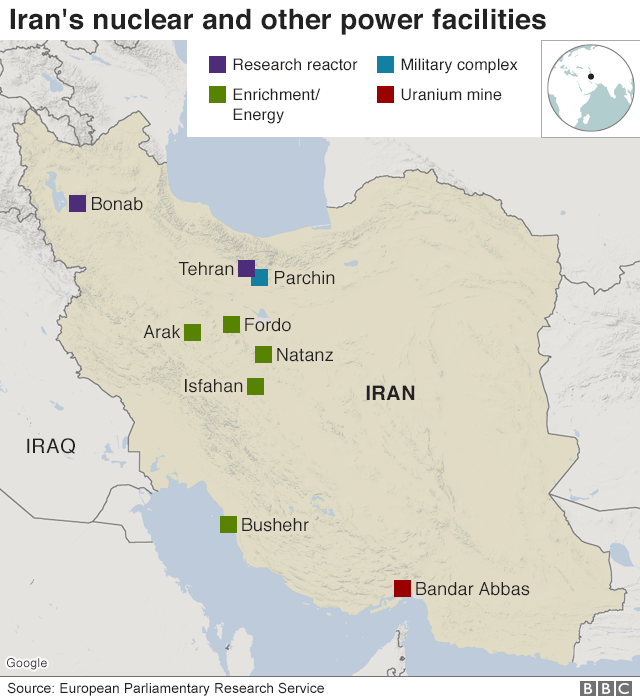
He said this was evidence that Iran had lied about its nuclear ambitions before the deal was signed in 2015.
Tension between the long-standing enemies has grown steadily since Iran built up its military presence in Syria, which lies to the north-east of Israel.
What does Trump object to in the deal?
Mr Trump has frequently voiced his opposition to the "insane" deal, which he has described as the "worst ever".
He has warned that the US would withdraw completely on 12 May - the next deadline for waiving sanctions - unless European signatories to the deal and Congress addressed his concerns.
A timeline of what Trump's said about the Iran deal
He is unhappy that the deal only limited Iran's nuclear activities for a fixed period and had failed to stop the development of ballistic missiles.
He also said it had handed Iran a $100bn (£72bn) windfall that it used "as a slush fund for weapons, terror, and oppression" across the Middle East.
What does Iran say?
Iranian President Hassan Rouhani has questioned the legitimacy of efforts by the US and France to change the nuclear deal with his country.
Mr Rouhani has said that Mr Trump has no "right" to renegotiate the seven-party agreement.
He has said Iran "will not accept any restrictions beyond its commitments" to comply with international rules in the years ahead.
Mr Rouhani has also accused Mr Trump of "maliciously violating" the nuclear agreement.
Iran maintains that the missiles it has tested are not designed to carry nuclear warheads and insists its nuclear programme is a peaceful one for energy purposes.
- Published3 May 2018
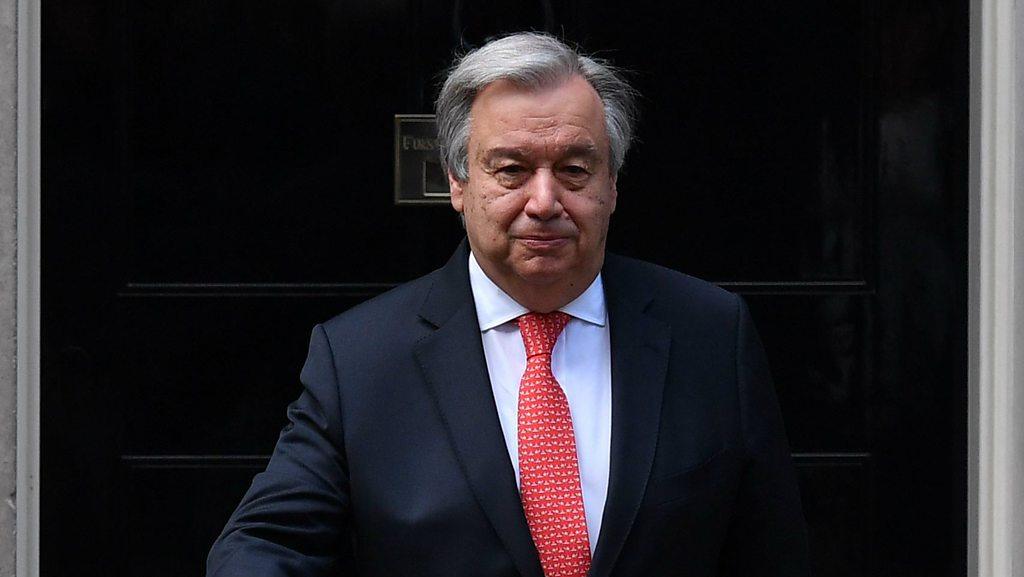
- Published1 May 2018
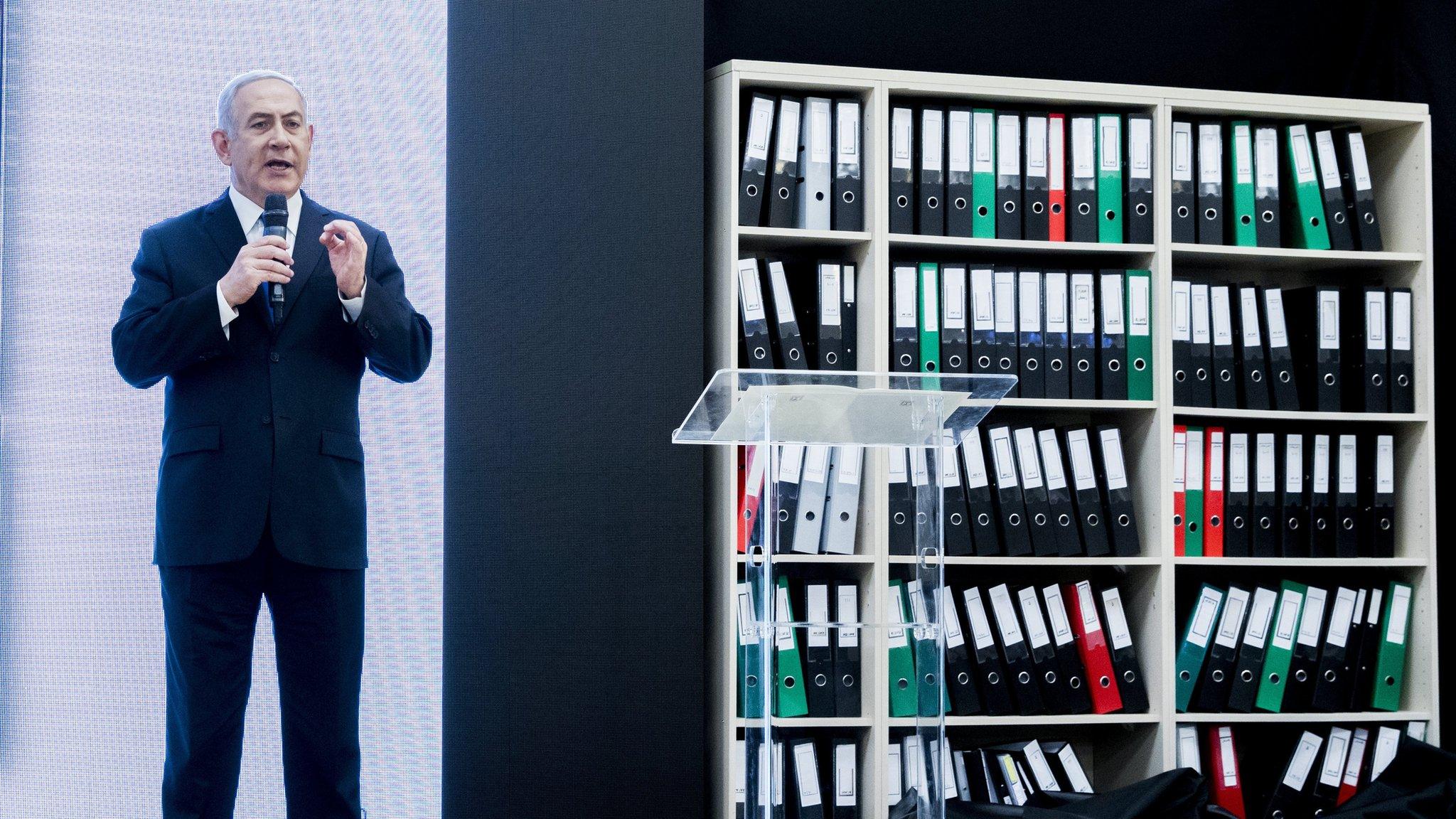
- Published7 August 2018
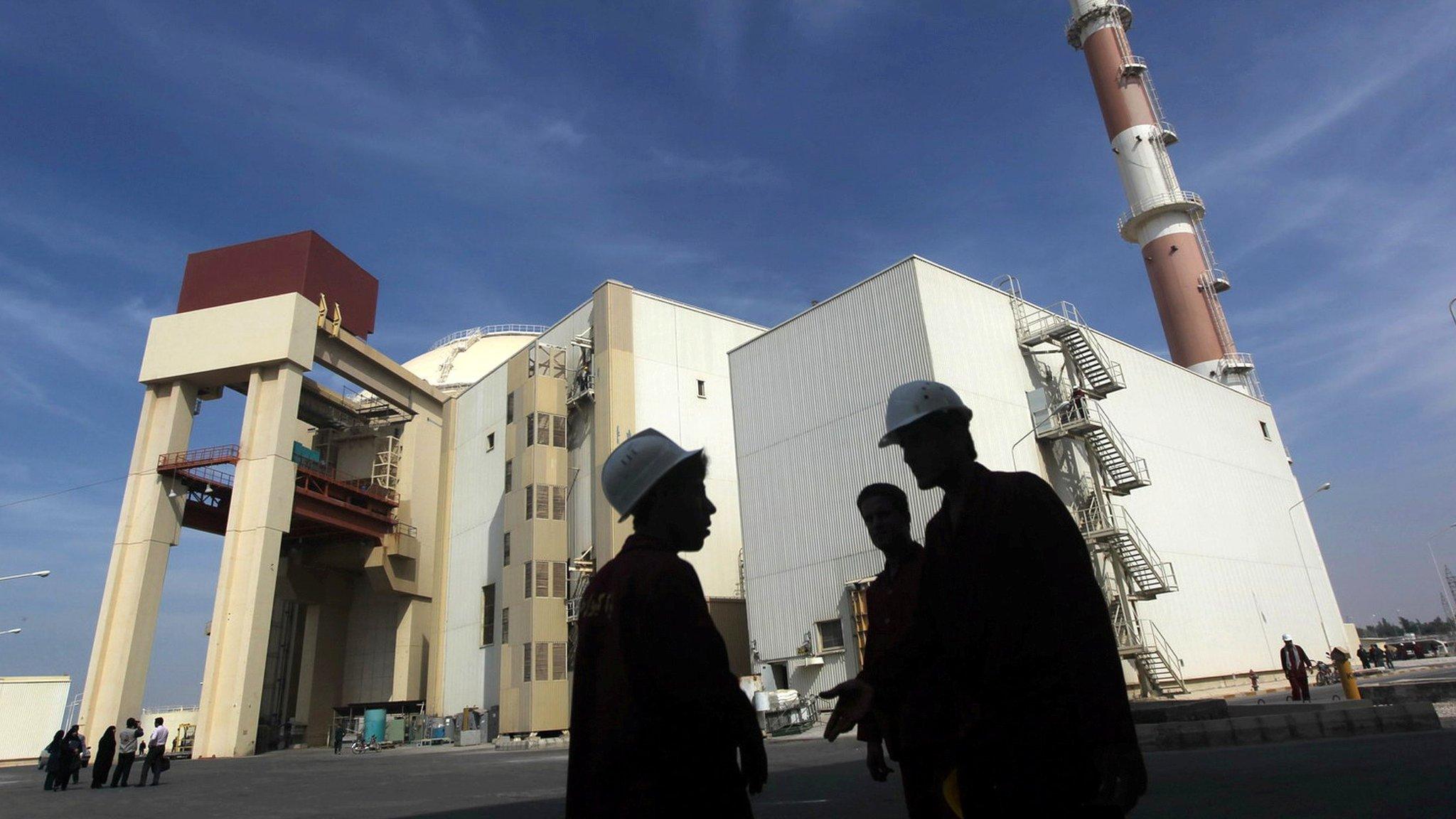
- Published23 November 2021
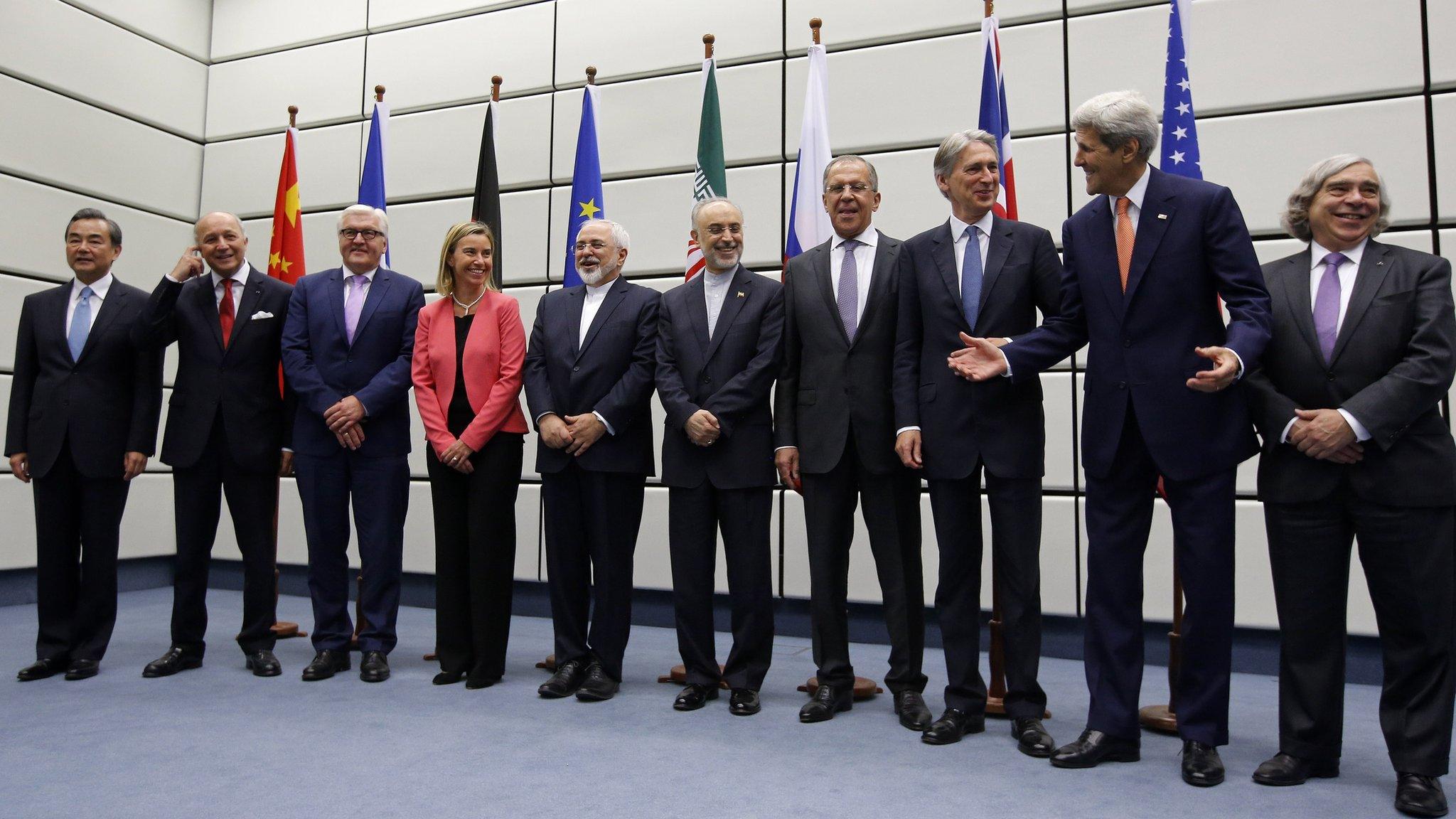
- Published5 May 2017